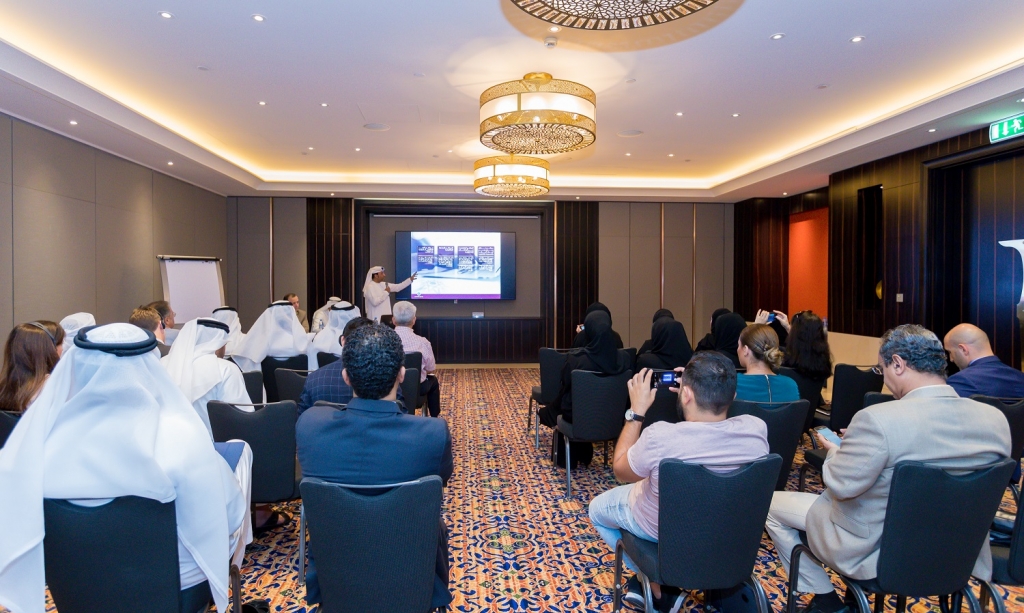
Electronic Media Regulations to Go into Effect Starting from June 2018
The National Media Council (NMC) hosted a workshop for institutions, companies, e-news sites and individuals who carry out commercial activities, to provide information about the new Electronic Media Regulations that apply to them.
The session, which took place in Abu Dhabi, emphasised the importance of obtaining the mandatory license that permits commercial activities conducted in the country via visual and print media, advertising and news websites, electronic publishing and on-demand printing, including activities promoted through social media.
“The Electronic Media Regulations form an essential component of regulating the media sector, and have been enacted as a response to the rapid growth and spread of electronic media. The aim of the regulations is to enhance competitiveness, increase reliability and support the provision of balanced, responsible and impartial media content that respects the privacy of individuals and protects society’s various segments from negative influences,” said Dr Rashid Al Nuaimi, the Council’s Executive Director of Media Affairs.
“The National Media Council require licensing of individuals who have accounts on social media who conduct activities that are commercial in nature, such as advertisements that are done on a paid-for basis. Accounts, blogs and personal pages are not subject to these new regulations, including the accounts of influencers on social media, provided they are not commercial in nature. Individuals and organisations that voluntarily promote work are not affected by the Electronic Media Regulations,” he added.
Al Nuaimi called on all institutions, companies and individuals who engage in activities of a commercial nature to register with the NMC’s electronic media regulations before the end of the May 31, 2018, saying: “We are constantly seeking to strengthen our partnership with the various components of the media sector in the country in a manner that will enable us to achieve our strategy of developing and promoting the local media sector and enabling it to cope with the rapid developments in the electronic media sphere.”
On the sidelines of the workshop, NMC held a discussion session with a group of local media representatives to review means to motivate companies, institutions and individuals involved in e-media activities to register and thereby ensure compliance with the new requirement. The session also showed the positive role that the Electronic Media Regulations play in ensuring respect for the prevailing religious, cultural and social values in the country.
Other aspects of the discussion highlighted the importance of ensuring balanced, responsible and impartial media content that respects the privacy of individuals, and protects the different segments of society from possible harmful effects. The discussion also outlined the role of the regulations in supporting the electronic and digital media industry and in organising its activities as an effective industry that supports the country’s media sector.
The Electronic Media Regulations seek – first and foremost – to help the UAE media sector remain on top of the rapid developments in the electronic media sector, in addition to enriching and organising digital content. The Executive Clause of the Media Content Regulation issued by the UAE Cabinet, include the criteria and conditions of commercial advertising in all media – including social media – which are based on commercial principles and which are intended to define the general principles, frameworks and standards of commercial advertising.
The websites of licensed traditional media (i.e. television, radio, newspapers and magazines) already fall under the provisions of the Electronic Media Regulations and as such, are not required to secure new licences.



























